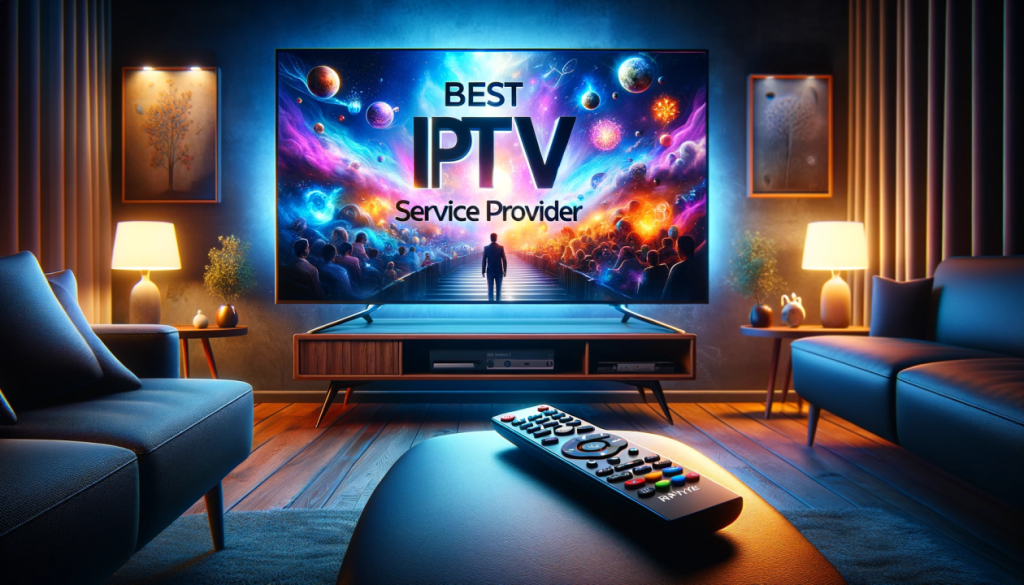
Introduction
The world of television has undergone a massive transformation over the years, shifting from traditional cable to internet streaming services. At the heart of this revolution is IPTV, or Internet Protocol Television. But what exactly is IPTV, and how did we get here? Let’s dive into the fascinating journey of IPTV and see how it has evolved to change the way we consume media. With IPTV Trends leading the charge, we’re seeing a new era of viewing convenience and content diversity.
The Early Days of Cable Television
Cable television was a groundbreaking development when it first emerged. It brought the promise of more channels and better reception compared to the traditional broadcast TV. Technological advancements in the 1940s and 1950s allowed for the widespread adoption of cable TV, providing households with access to a variety of programs from across the globe. However, cable TV had its limitations, including fixed schedules and lack of interactivity.
The Birth of IPTV
As the internet began to flourish in the late 20th century, a new way of delivering television content emerged: IPTV. Unlike cable TV, which relied on physical coaxial cables, IPTV uses the internet to deliver content. This was a game-changer, offering a more flexible and interactive viewing experience. Early adopters quickly saw the potential, although initial reception was mixed due to bandwidth limitations and technological constraints.
How IPTV Works
IPTV functions by sending television content over the internet through a series of protocols. Instead of traditional broadcasting methods, IPTV uses IP (Internet Protocol) to deliver video content. This allows users to stream content directly to their devices without the need for a satellite dish or extensive cable infrastructure. The role of the internet in IPTV cannot be overstated, as it provides the backbone for delivering high-quality video content seamlessly.
Advantages of IPTV over Traditional Cable
One of the biggest advantages of IPTV is the enhanced viewing experience it offers. Users can enjoy high-definition content, interactive features, and a more personalized viewing experience. On-demand content is another major benefit, allowing viewers to watch what they want when they want. Additionally, IPTV tends to be more cost-effective compared to traditional cable services, making it an attractive option for many households. With IPTV Trends, you get the best IPTV service tailored to your needs.
Types of IPTV Services
IPTV services come in various forms, catering to different viewing preferences:
- Live IPTV: Streaming live television broadcasts over the internet.
- Time-shifted IPTV: Allows users to watch previously broadcasted shows at their convenience.
- Video on Demand (VoD): Provides access to a vast library of content that can be watched at any time.
With IPTV Trends, you can access all these types and enjoy the best IPTV experience available.
Major Milestones in IPTV Development
The journey of IPTV has been marked by several key innovations. The early 2000s saw the introduction of more sophisticated streaming technologies, which improved the quality and reliability of IPTV services. Major companies began adopting IPTV, further driving its popularity. This period also saw significant impacts on the entertainment industry, as traditional cable providers started losing ground to internet-based services.
IPTV and the Rise of Streaming Giants
The entry of streaming giants like Netflix, Hulu, and Amazon Prime Video transformed the landscape of television viewing. These platforms leveraged IPTV technology to offer vast libraries of content, often producing their own exclusive shows and movies. This shift not only changed viewing habits but also intensified competition in the entertainment industry, leading to collaborations and mergers.
Challenges and Criticisms of IPTV
Despite its many advantages, IPTV is not without challenges. Technical issues such as buffering and latency can affect the viewing experience. Content piracy is another significant concern, with unauthorized streaming posing a threat to the industry. Additionally, regulatory challenges vary by region, with some countries imposing strict rules on IPTV services to protect traditional broadcasters. IPTV Trends addresses these challenges by offering reliable services and adhering to all legal regulations, ensuring that you receive the best IPTV service without any hassle.
The Role of Smart TVs in IPTV Adoption
Smart TVs have played a crucial role in the widespread adoption of IPTV. These devices come with built-in internet connectivity and apps, making it easy for users to access IPTV services. The integration of IPTV into smart TVs has provided consumers with a seamless and convenient way to enjoy a wide range of content, contributing to market growth. IPTV Trends is compatible with all major smart TV brands, making it easy for you to access the best IPTV content on your favorite devices.
Impact of Mobile Devices on IPTV Consumption
The rise of mobile devices has also significantly impacted IPTV consumption. With smartphones and tablets, users can now watch their favorite shows on the go. Mobile apps have made IPTV services more accessible, catering to the changing viewer demographics that increasingly favor mobile viewing. IPTV Trends offers a top-notch mobile viewing experience through its IPTV smarters expert app, ensuring that you never miss a show, no matter where you are.
Future Trends in IPTV
Looking ahead, the future of IPTV seems promising with continuous advancements in technology. The potential integration of 5G networks could further enhance the quality and speed of IPTV services. Predicted market trends indicate a growing demand for personalized and interactive content, driving further innovation in the industry. IPTV Trends is at the forefront of these innovations, constantly upgrading its services to provide you with the best IPTV experience.
Comparing IPTV with Other Streaming Technologies
When comparing IPTV with other streaming technologies, several differences emerge:
- IPTV vs. OTT (Over-the-Top): While both deliver content via the internet, IPTV is typically provided by ISPs and offers more control over the network, whereas OTT services like Netflix operate independently.
- IPTV vs. Satellite TV: IPTV offers greater flexibility and interactivity compared to satellite TV, which relies on physical satellites for broadcasting.
Each technology has its strengths and weaknesses, but IPTV stands out for its blend of flexibility, cost-effectiveness, and enhanced user experience. With IPTV Trends, you get the best of both worlds.
IPTV in Different Regions
The adoption of IPTV varies across different regions:
- North America: High penetration due to advanced infrastructure and high internet speeds.
- Europe: Steady growth with a focus on premium content and bundled services.
- Asia-Pacific: Rapid growth driven by increasing internet access and a large population base.
Each region presents unique opportunities and challenges for IPTV providers, shaping the global landscape of internet-based television. IPTV Trends has tailored its services to meet the diverse needs of users worldwide, ensuring you get the best IPTV service regardless of your location.
Conclusion
The evolution of IPTV from traditional cable television to internet streaming is a testament to the relentless pace of technological advancement. IPTV has revolutionized the way we consume media, offering unparalleled flexibility and a richer viewing experience. As technology continues to evolve, IPTV is poised to become even more integral to our daily lives, transforming entertainment for generations to come. IPTV Trends is dedicated to leading this charge, providing you with the best IPTV solutions tailored to your needs.
FAQs
What is the main difference between IPTV and traditional cable TV? IPTV delivers content via the internet, offering more flexibility and interactive features compared to traditional cable TV, which relies on physical cables and fixed schedules.
Can IPTV services replace satellite TV? Yes, IPTV services can replace satellite TV, offering similar content with added benefits such as on-demand viewing and greater interactivity. IPTV Trends ensures a seamless transition with its top-notch services.
How do I choose the best IPTV service? When choosing an IPTV service, consider factors such as content library, cost, device compatibility, and customer reviews to find a service that meets your needs. IPTV Trends stands out with its comprehensive offerings and excellent customer support.
Are there any legal issues with using IPTV? Legal issues with IPTV can arise if the service provider offers unauthorized content. It’s important to choose reputable providers to avoid potential legal complications. IPTV Trends adheres to all legal regulations, ensuring you receive the best IPTV service legally.
What equipment do I need for IPTV? To use IPTV, you’ll need a stable internet connection and a compatible device such as a smart TV, smartphone, tablet, or streaming device like a Roku or Amazon Fire Stick. IPTV Trends offers easy setup and compatibility with all major devices.

